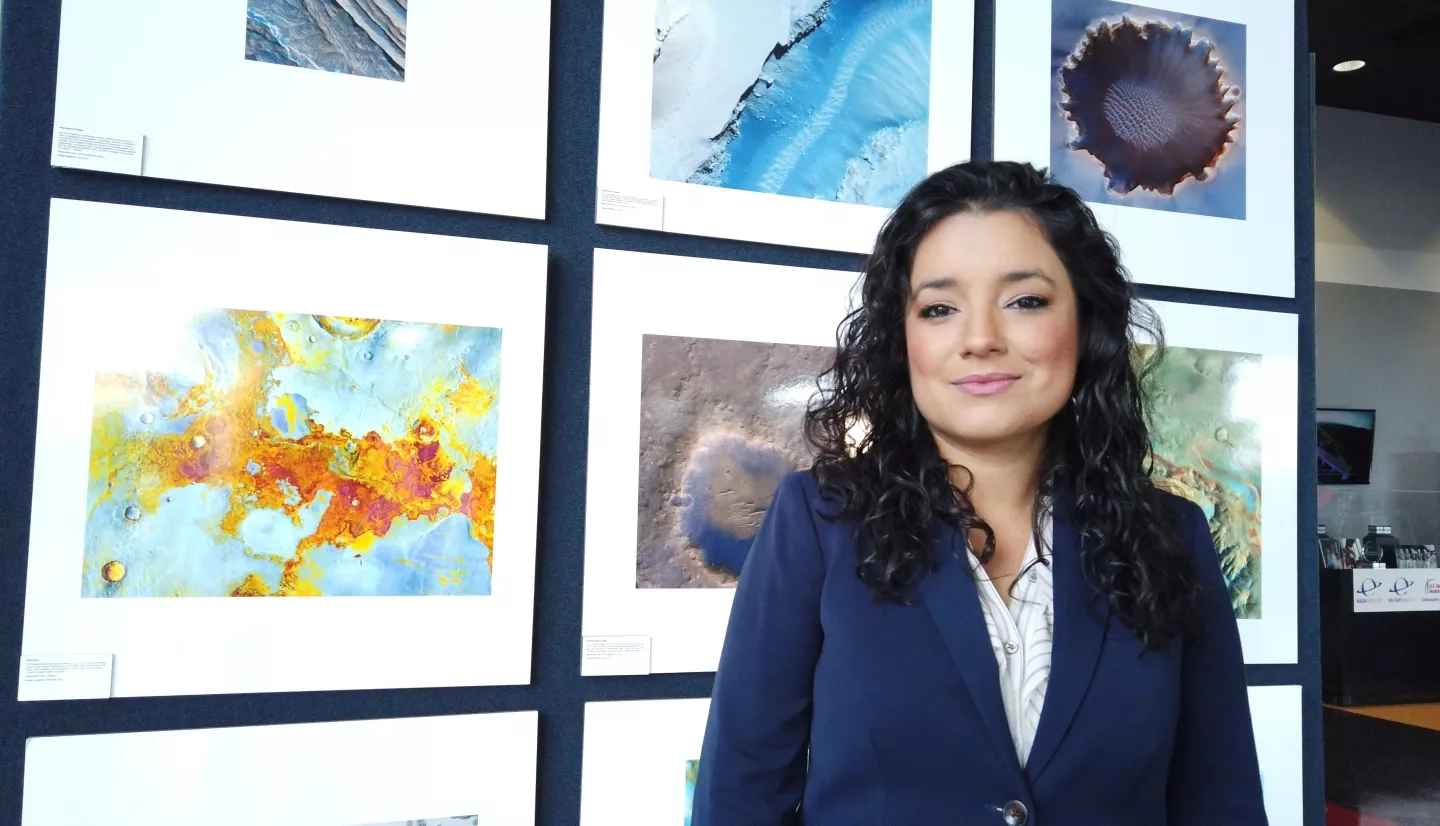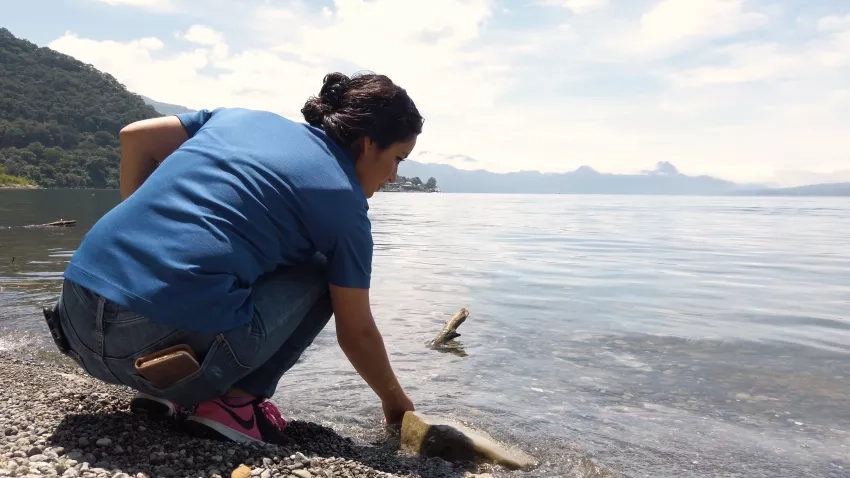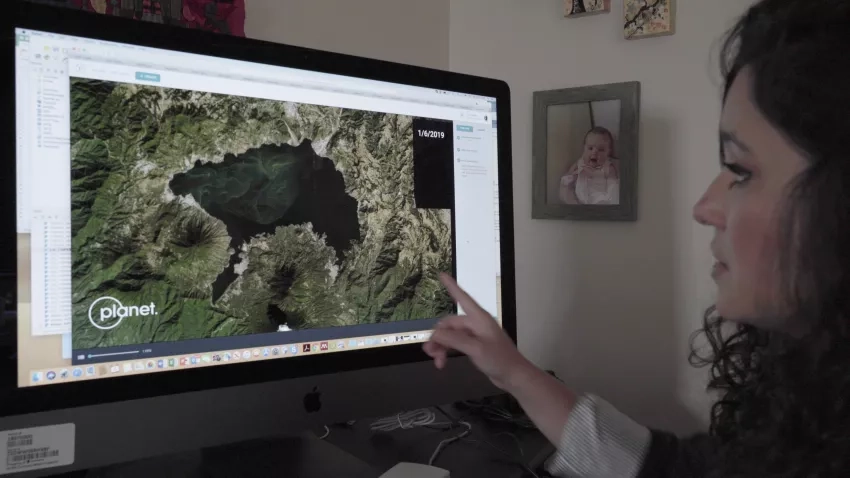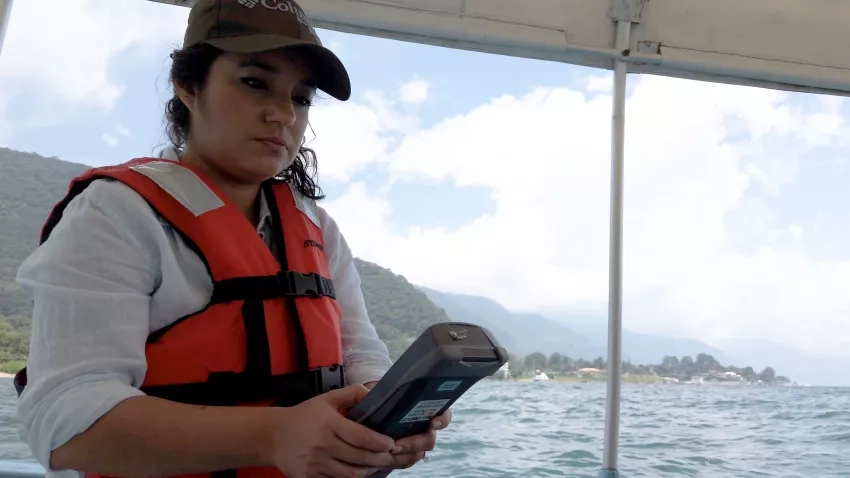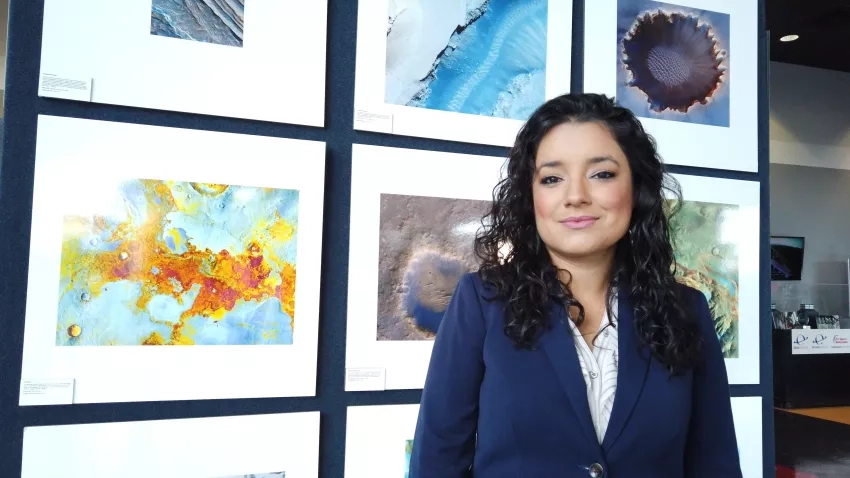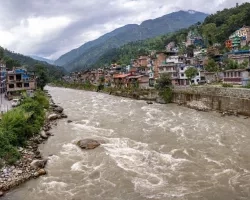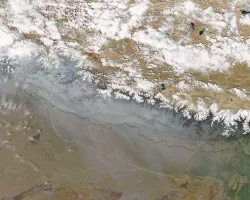In September 2020, Africa Flores, land cover land use change thematic lead and regional science coordination lead for SERVIR Amazonia, knelt on the shores of Lake Atitlán to examine the water as it fell through her fingers. Back in her office, she used an entirely different view of the lake – as seen from a satellite – to assess the health of the water she just saw in person.
For Flores this was a regular day at work, with one exception – she was also sharing these two views with the Science Friday video crew for an episode of their "Breakthrough Women in Science" series titled The Lake Sentinel. Flores was pleased to bring the show’s producers to her home country for filming – and to show the potential for Earth observations to inform local decision making. Science Friday is a weekly nature, medicine and technology science public radio show from the Science Friday Initiative that is carried on more than 400 public radio stations. They also produce video and educational content, and the Flores episode, released publicly on October 16, 2020, shares an up-close look at Flores’s use of NASA Earth observations to monitor water quality in Lake Atitlán in her native Guatemala, where she is currently using satellite data and machine learning to study the impact of algal blooms. This work is also supported by National Geographic and Microsoft through their Artificial Intelligence (AI) for Innovation grants.
“Growing up in my small town in Guatemala, I never thought I would work with satellite data, not to mention work for NASA,” said Flores. “It’s emotional to see the journey. Being able to pay it back to the country that inspired and formed me encourages me to keep moving forward. I hope that this short film can contribute to disseminate how relevant Earth observations are for natural resources management and also reveal what a career path can look like for girls interested in science.”
The Breakthrough series is a collaboration between Science Friday and Howard Hughes Medical Institute, a science philanthropy dedicated to advancing biomedical research and science education. The series follows women working at the forefront of their industries to blend personal stories with the innovative scientific research of women across science, technology, engineering and mathematics fields. By showing scientists like Flores overcoming challenges like institutional norms and challenging working conditions, the program’s producers say they hope the series inspires women to lead careers in industries historically dominated by men.
The Science Friday producers said the ways Flores is empowering local decision makers with satellite data is exemplary of the power of Earth observations in the right hands. "I found out about Africa through her status as a National Geographic Explorer and right away I was drawn to her story. I knew it would be fascinating and inspiring for our audience," said Katie Garrett, episode producer. "Working with Africa I was blown away by her skill interpreting this data, it really opened my eyes to the depth of information we can gain from satellite monitoring, and it is so powerful to see the real-world application from such a personal perspective."
Dan Irwin, global program manager of SERVIR, says this episode is an opportunity to further Flores’s goal of inspiring young women around the world to pursue careers in science. “Africa is already an inspiration to so many,” Irwin said. “We’re excited for this episode to bring her work and her story to even more people around the world to show the groundbreaking work women like Africa are leading.”
SERVIR, a joint initiative of NASA Earth Applied Sciences Capacity Building program area and the United States Agency for International Development (USAID), works to empower local decision-makers around the world with tools, products, and services to act locally on climate-sensitive issues like disasters, agriculture, and water resources.
To learn more about Flores’s award-winning career, see the Earth Applied Sciences post about her recent recognition by the Geospatial World Awards or an interview with her by the online publication Massive Science.
